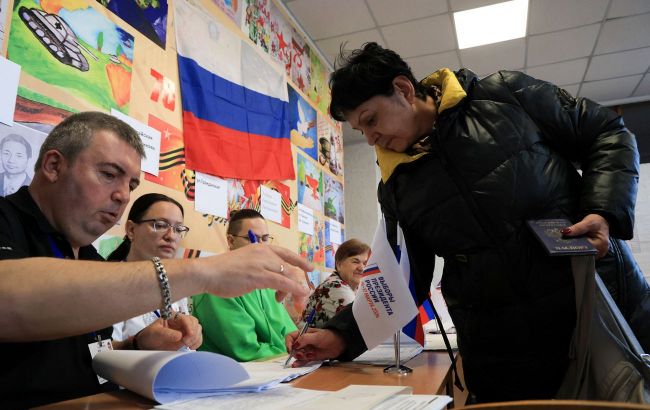MFA on Russia’s Crimean and Sevastopol elections: Results illegal and unrecognized
 Photo: Ukraine rejects Russian "by-elections" in temporarily occupied territories (Getty Images)
Photo: Ukraine rejects Russian "by-elections" in temporarily occupied territories (Getty Images)
The Ministry of Foreign Affairs of Ukraine emphasized that the results of the Russian pseudo-elections are illegal and will not be recognized.
On September 14, Russia held the so-called "single voting day." This year, the simulated electoral process also affected temporarily occupied Ukrainian territories, including Crimea and Sevastopol.
The occupying authorities organized "by-elections" for the city council deputies of Sevastopol and Simferopol, as well as the election of the "governor" of Sevastopol.
Ukraine does not recognize the results
The Ministry of Foreign Affairs of Ukraine emphasizes that any "elections" in temporarily occupied territories are illegal, and their results are null and void. No individuals "elected" during this farce will have any legal grounds to perform official duties.
"Any bodies, as well as their officials and employees in the temporarily occupied territory, along with all their activities, are considered illegal," the MFA statement reads.
Ukraine is confident that its allies and partners will not recognize the results of the pseudo-elections, will not engage with representatives of the occupying authorities, and will continue to uphold the policy of non-recognition of Russia's occupation of Ukrainian lands.
Responsibility for organizing the 'elections'
The Ministry of Foreign Affairs stresses that all those involved in organizing and conducting the "elections" in the occupied territories will bear responsibility under Ukrainian law and international norms, and will also fall under sanctions imposed by Ukrainian and international jurisdictions.
"Sham elections on stolen land will not help Russia legitimize the occupation — what was stolen will have to be returned," the diplomatic service concluded.
Due to the conduct of illegal elections in Ukraine's temporarily occupied territories, cyber specialists from the Defense Intelligence carried out a large-scale attack on the Russian Central Election Commission’s resources on September 14, 2025.
As a result of the attack, the operation of digital services was temporarily paralyzed, and many Russians were unable to vote in elections in the regions of the Russian Federation.
Recently, Moldovan President Maia Sandu accused Russia of interfering in the country’s parliamentary elections. Moscow reportedly uses priests and bot networks to exert influence.
Earlier, the Center for Countering Disinformation reported that Russia has been intensifying its information campaign in Moldova ahead of the parliamentary elections scheduled for September 28.

